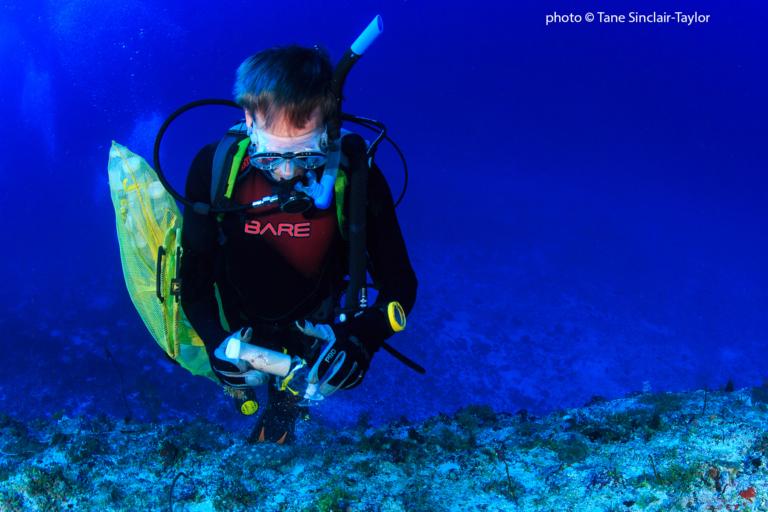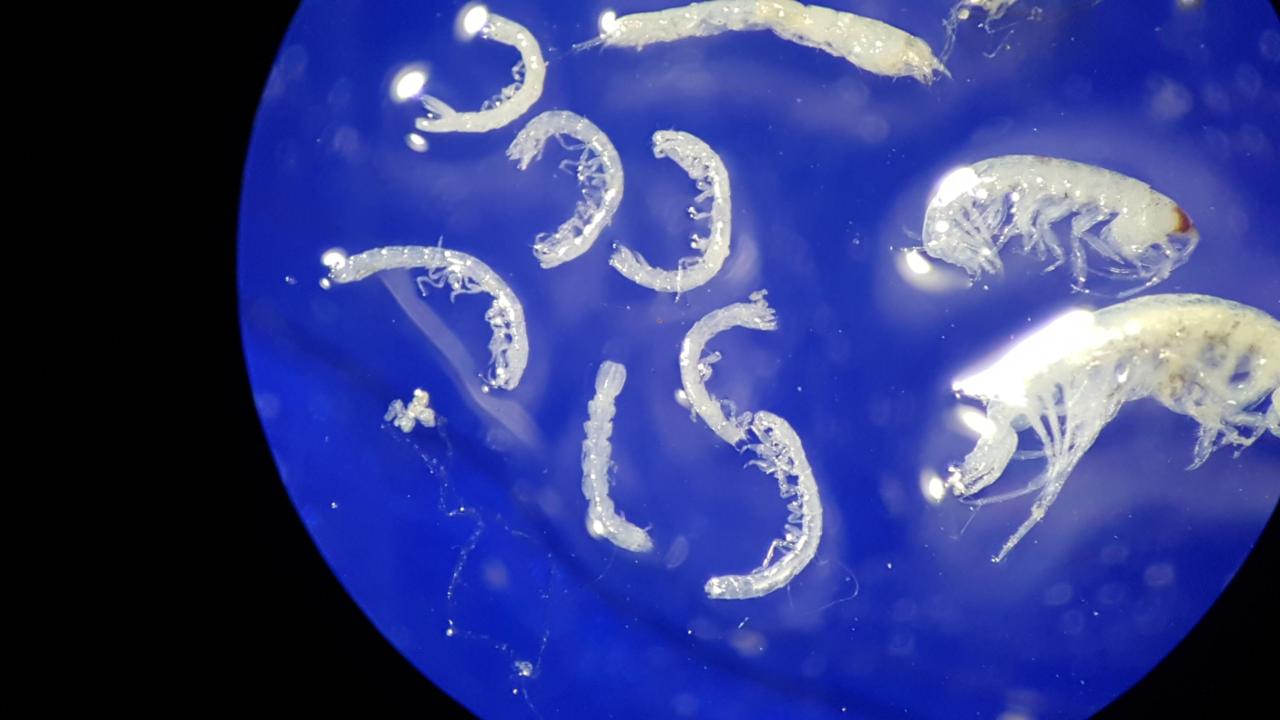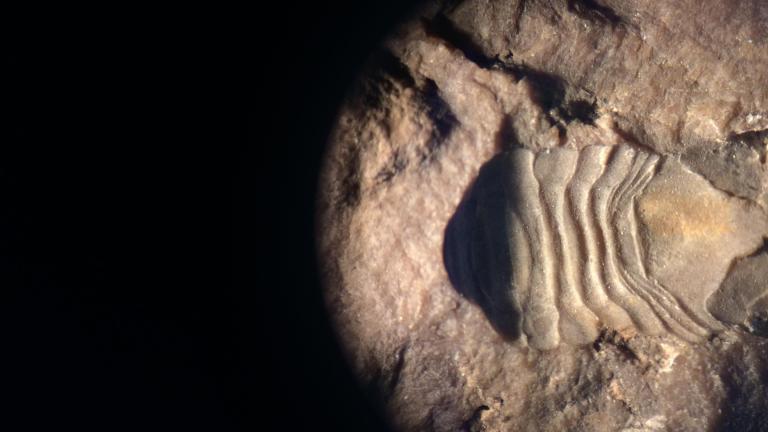
One of the processes shaping and determining subterranean biodiversity is the well-known evolutionary mechanism of convergence. Crustaceans (“Kreeftachtigen”) are a large group of arthropods that have successfully invaded the underground habitats of caves, coral rubble and beach sand interstices and ocean floor sediments. Some groups, like amphipods, isopods and copepods have colonised terrestrial and marine groundwater environments and show a remarkable versatility in adapting to subterranean conditions.
Keywords
Groundwater crustacean biodiversity, adaptive shifts, marine interstitial
Researchinterest
My work focusses on reconstructing the evolutionary history and biodiversity of groundwater Crustacea in marine, freshwater and palaeo-environments. Most groundwater crustaceans are small, some of which apparently lack a fossil record. However, based on the distribution patterns of some groups it has been suggested that their evolutionary history dates back to the Cretaceous, or even Upper Paleozoic, and that adaptation to freshwater environments took place around the break-up of Pangea. These conclusions are inferred from global distribution patterns. However, many questions regarding the origin of these groups are still unanswered. For example, the ecological requirements of stygobiont amphipods are remarkably diverse. Some groups occur exclusively in freshwater habitats, while others inhabit both marine and freshwater environments. Did the invasion of subterranean waters occur just once or several times independently? Can we explain the evolutionary history of stygobiont peracarids, or subterranean crustaceans in general, by vicariance alone?


Currenttopics
A selection of the topics I am working on currently.
- Fossil sphaeromid isopods in French Paleocene limestone
- Marine interstitial lepidocharontidid isopods from the Caribbean Netherlands
- Semi-terrestrial talitrid amphipods from the Mediterranean
- Ecomorphological aspects in the evolution of symbiotic marine amphipods
Keypublications
- Nijman V., Vonk R. (2023). Room for Females Only? Exploring Strongly Female-Biased Sex Ratios in Ingolfiella (Crustacea: Peracarida: Ingolfiellida) in Relation to Ecological Condition. Journal of Crustacean Biology, 42 (3), ruac049
- Robin N., Gueriau P., Luque J., Jarvis D., Daley A.C., Vonk R. (2021). The oldest peracarid crustacean reveals a Late Devonian freshwater colonization by isopod relatives. Biology Letters, 17 (6), 20210226.
- Robin, N., Marramà, G., Vonk, R., Kriwet, J., & Carnevale, G. (2019). Eocene isopods on electric rays: tracking ancient biological interactions from a complex fossil record. Palaeontology, 62(2), 287-303.
- Davolos, D., De Matthaeis, E., Latella, L., Tarocco, M., Özbek, M., & Vonk, R. (2018). On the molecular and morphological evolution of continental and insular Cryptorchestia species, with an additional description of C. garbinii (Talitridae). ZooKeys, (783), 37.
- Burridge, A. K., Tump, M., Vonk, R., Goetze, E., & Peijnenburg, K. T. (2017). Diversity and distribution of hyperiid amphipods along a latitudinal transect in the Atlantic Ocean. Progress in oceanography, 158, 224-235.
- Vonk, R., & Lau, Y. W. (2017). Microcharon quilli, a new asellote isopod crustacean from interstitial spaces in shallow coralline sands off St. Eustatius, Caribbean Netherlands. Marine Biodiversity, 47(1), 139-147.
- Vonk, R., Latella, L., & Zorzin, R. (2015). Eocene isopods of Pesciara di Bolca (Italy) revisited. Journal of Crustacean Biology, 35(4), 540-546.
PhDsupervision
Naturalis aims to be a breeding ground for international scientific talent. Therefore, PhD's have a special position in our organisation.
Co-promotor:
- Gier, W. de. Ecomorphological aspects in the evolution of symbiotic marine crustaceans. Groningen University, 2019-2023.
Teachingactivities
- Biodiversity and Ecology, 1st year Bachelor course, University of Amsterdam
- Biological Oceanography, Master course, University of Amsterdam